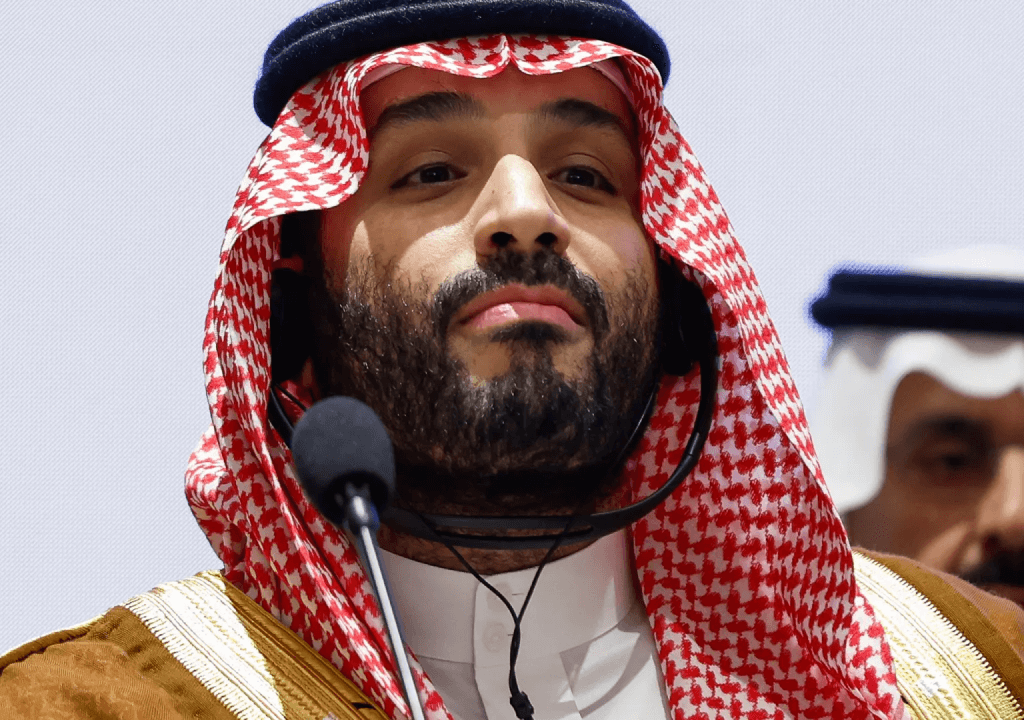Following Israel, Saudi Arabia stands as the United States’ foremost ally in the Middle East. The connection between the kingdom and Washington is robust and intimate, with both entities walking hand in hand towards shared goals. However, Saudi Arabia, the land of Mohammed, the site of Mecca and Medina, a country that still upholds strict Sharia law and one of the largest funders of Islamist organizations always says about a commitment to Palestine. The question arises: How long can they continue to turn their face against their fellow Muslim brothers in Gaza? The issue in Palestine has never been solely between Palestine and Israel, two countries, but has always been perceived as a conflict between Muslims and Jews, thus garnering global attention. Saudi Arabia, considering itself as the leader of Muslims, has faced significant criticism for its inaction regarding Palestine. However, recent developments suggest that Saudi Arabia is strategically moving to gain more benefits from the United States by staying with them in the Israel-Palestine conflict.
Saudi Arabia still doesn’t have a formal relationship with Israel, even though the United States is the primary ally of both Saudi Arabia and Israel. Saudi Arabia cooperated with the Arab League against Israel in the initial years of the Arab-Israeli conflicts. However, they played only minor roles in the series of wars. Even though Hamas and Palestine maintain stronger ties to Saudi Arabia’s rivals, Iran and Qatar, Saudi Arabia did not try to publicly align with Israel, not even during the Trump administration when Saudi Arabia’s allies like the UAE and Bahrain established formal ties with Israel. However, business between them gained momentum as Saudi Arabia’s allies established diplomatic relations with Israel. But all the progress was lost when Hamas attacked Israel on October 7th of last year. The Hamas attack, Israel’s retaliation, and perceived poor administration from the US under Biden have brought the Israel-Saudi Arabia relationship to a standstill. Some even doubt if the Hamas attack on Israel was orchestrated by Iran and Russia to halt Israel-Saudi Arabia talks. If an axis develops among the United States, Saudi Arabia, and Israel, other players will be thrown out of the scenario. However, now there is widespread anger among the Muslim population against Israel, including in Saudi Arabia. Due to strict laws, protests are unlikely, yet criticism is high as the Saudi government hasn’t intervened. Meanwhile, Iran and Turkey are using the situation to assert their roles as advocates for Islam and leaders of the Muslim world.
Saudi Arabia is actually strategically maneuvering its position. The kingdom is presently focused on diminishing its reliance on Israel while leveraging the circumstances to secure more favorable terms with the United States. Despite encountering criticism from certain segments of the Muslim world, Saudi Arabia perceives this strategy as advantageous. With no ceasefire in Gaza and strong opposition from Benjamin Netanyahu’s Israeli government to a Palestinian state, the Saudis are now pushing for a more streamlined alternative. Which is excluding Israel from the deals with the United States. This alternative involves bilateral defense pacts, US assistance in developing Saudi Arabia’s civil nuclear energy sector, and significant collaboration in emerging technologies such as artificial intelligence. Under Riyadh’s proposal, these agreements would not require Israel’s approval. The United States is cautious about involving Israel at this stage, fearing that Saudi Arabia might pivot towards alignment with China or Russia, which could undermine US dominance in the region and have significant economic repercussions. While the exclusion of Israel from these agreements will impact Israel, it is expected that Israeli businesses will shift to the US. A formal offer would be extended to Israel, proposing Saudi normalization, a significant objective in Israeli foreign policy, in exchange for definitive steps towards establishing a Palestinian state encompassing Gaza and the West Bank. The US aimed for this offer to become a focal point in Israeli politics, particularly during elections following the potential collapse of the Netanyahu government.
Saudi Arabia, one of the powerhouse of the Middle East, ranks as the world’s second-largest oil producer after the United States and the second-largest GDP in the Middle East, trailing only Turkey. They are in an effort to transition from strict Islamic laws to a more economy-oriented perspective involving substantial investments in media, tourism, and sports. Furthermore, they aspire to host prestigious global events such as the FIFA World Cup and Olympics on their soil, underscoring their prioritizations. The support of the United States will ensure that Saudi Arabia can achieve this endeavor. However, a less assertive stance on the Gaza situation has the potential to tarnish Saudi Arabia’s reputation as the leader of Islamic states. On the other hand, it aids the United States in intensifying efforts to bolster bilateral trade, enhance security partnerships, and promote technological advancements, including the establishment of a uranium processing plant. Concerns regarding the kingdom’s human rights record and women’s rights issues, which no longer seem to trouble the United States. Instead, they aim to maintain a close alliance with Saudi Arabia, And that Saudi Arabia is keenly aware of.








